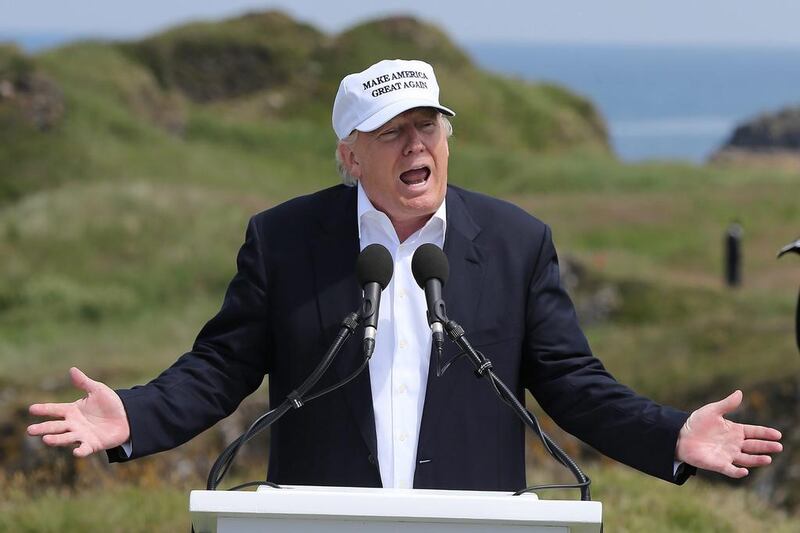There are many layers of autopsy to dissect on the Brexit vote. But on its most simple and pragmatic level, we now have to accept that what may have previously appeared impossible for all the intellectual arguments that anyone with half a brain chose to assemble, is now possible – Donald Trump really could become the American president on November 4.
Indeed, many right-wing nationalist candidates stand elevated after the June 23 vote, and one big step closer to success across Europe – including the French Front National leader, Marine Le Pen, who is now expected to easily qualify to be one of the final two candidates to contest for the presidency in France next May.
The Democratic candidate Hillary Clinton’s campaign issued a wake-up call fundraising appeal on Friday, addressing the new possibility and writing: “No matter what the collective wisdom of our political punditry has to say between now and November, Donald Trump has a real chance of winning this election.”
The Democrats were firmly in favour of the Remain side of the UK vote, whereas Mr Trump supported the Leave campaign, and thus claimed ownership of victory while standing on the first green of his US$200 million golf course in Turnberry, Scotland over the weekend.
The ultimate challenge to Mrs Clinton and opportunity for Mr Trump is to frame the US presidential election as a single issue-style referendum on the elusive vacuous nationalistic concept of reclaiming your country – build a wall to stop immigrants and all will be well.
For Mrs Clinton, the Democrats and the 48 per cent who voted for the UK to remain in the EU, the world is a much more complicated place than that, with multiple issues and interests, local and international, that must coexist for consideration and debate.
Mr Trump ignores all those shades of grey and stands to gain immensely over the next few months as the world’s media, leaders and markets will be obsessed with the single narrative of the UK leaving Europe.
Still, the scale of hard cold reality we saw on the global markets on Friday will be very difficult for even the blinkered Mr Trump campaign and its supporters to ignore, as Britain’s vote to leave the EU drove the pound to the lowest level in 31 years and wiped about US$3 trillion from stock market values while sparking demand for haven assets from US Treasuries to gold.
Mrs Clinton’s advisers will need to work overtime to highlight all the ways that a presidential election is not a referendum. The Brexit vote did not have a candidate.
The decision about the presidency involves far more than disagreements over public policy. Character and leadership are going to be paramount in this choice for Americans in November.
In the US, Mr Trump draws strengths from many of the same frustrations that emerged in the Brexit campaign, there are many differences between a US presidential election and the UK referendum that will emerge in the coming months in the heat of battle, that will challenge the Republican candidate’s ability to sustain a one-trick pony nationalistic “us versus them” message.
For starters, the US has a significantly larger, younger and more racially and ethnically diverse population than Britain. About 15 per cent of the British electorate is not white compared with more than 25 per cent in a US presidential election. Another major difference is that the presidential election is actually 50 separate elections held across 50 states that have a diversity of relevant local issues, articulated by an array of candidates running for a multitude of offices on the same ballot sheet.
That said, in this technology age of sound-bite headlines and 30-second attention spans, Mrs Clinton is going to have to go back to the drawing board to find an Obamaesque “Yes We Can!” message with a punch that can compete with the emotional sloganeering of Mr Trump’s “Make America Great Again”.
Sean Evers is the founder and managing partner at Gulf Intelligence.
business@thenational.ae
Follow The National's Business section on Twitter





